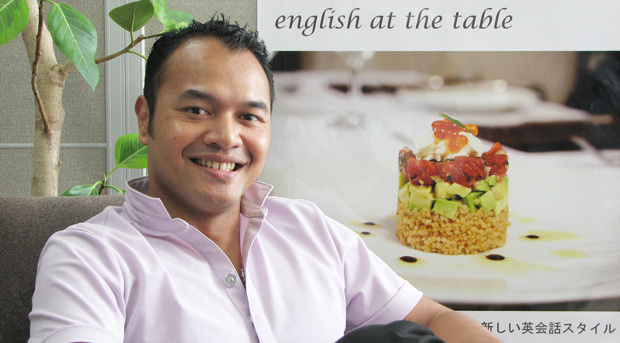Armed with a unique background in food service and hospitality, Ryan Ahamer has used his experience and knowledge to establish three unique Tokyo businesses. Accent Language Boutique is a brand that focuses on developing small, intimate schools, with a relaxing atmosphere in modern surroundings. His passion for teaching English and cooking has produced an innovative service called EATT, and HosPro was built upon insight, experience and know-how to serve a niche language learning market.
How long have you been in Japan?
I had only intended to stay for six months during what I thought was the start of my global expedition in search of my ‘calling.’ I didn’t have to go far to find what I was looking for, and I have since been in Japan. I arrived in Japan just a little over eight years ago.
What is your background and why did you decide to start your business?
In Australia, whilst studying for an international marketing and advertising degree, I was involved in the food and beverage industry. I accumulated over 13 years of experience in both Adelaide and the Gold Coast as a chef, bartender, server and manager in various establishments from cafés to fine dining. In Japan I started teaching at a large English school chain, and to date have accumulated over eight years of invaluable experience in the Japanese language education industry. With over 20 years of experience in the food and beverage and language education industries, a passion for creativity and innovation has lead me to establish Accent Language Boutique, EATT (pronounced eat) and HosPro.
‘To merely copy a business is fraught with mediocrity.’
Please tell us a bit about your companies.
Accent Language (www.accent-language.com) was established in 2008 with an aim to combine my food and beverage and language education experience into a business. This was quite natural considering the amount of time I had invested in both industries. The fact that my father was also a successful entrepreneur in the prestige car industry might also have been an influence. Accent Language has been positioned to cater for individuals who are particular about both price and quality. Offering short term courses, it also appeals to those who prefer full flexibility and customizability to suit their individual English communication needs in a professional and friendly manner.
Seeking a competitive advantage, I drew upon my food and beverage skills and expertise to produce a complementary service, EATT (www.eatt-fwe.com), which appeals to both Japanese and non-Japanese alike. EATT holds food and wine events in addition to gourmet cooking and tasting classes. The broadness of this service taps into the wider Tokyo population, offering a social means for people with an interest in food, wine, language and culture to come together.
Recognizing a social and economic shift within Japan, HosPro (www.hospro.jp) was developed, again using the company’s strengths to tap into a niche market. Targeted towards hospitality businesses rather than individuals, HosPro instructors train and develop hospitality professionals in language, communication and culture to serve an international clientele, both in Japan and abroad.
What are the Japan-specific challenges your business faces?
Political instability and economic uncertainty have pushed Japan into dire straits. This, coupled with a decreasing birthrate and an aging population, means that Japan needs to embrace globalism and seek international experience if it is to sustain any economic momentum. My business serves to prosper in this move. However, if the Japanese government does not wholeheartedly support such a move, a window of opportunity will have been missed.
What sets your companies apart from their competitors?
To merely copy a business is fraught with mediocrity. The insight and creativity to innovate, and the passion and vision to excel sets a company apart from its competitors..
What kind of advice would you give to aspiring professionals and entrepreneurs?
Know your personal strengths and weaknesses. Refine them. Competition is inevitable; choose your ‘battles’ and ‘battleground’ wisely. Align well thought-out short-term strategies with long-term overall objectives.









